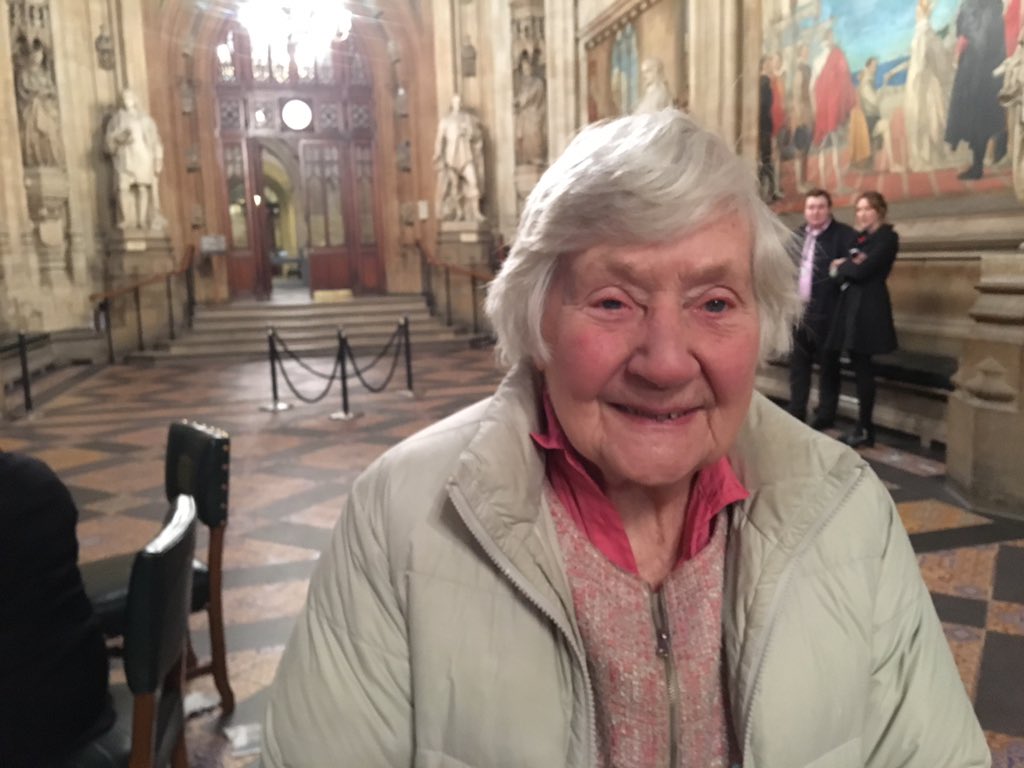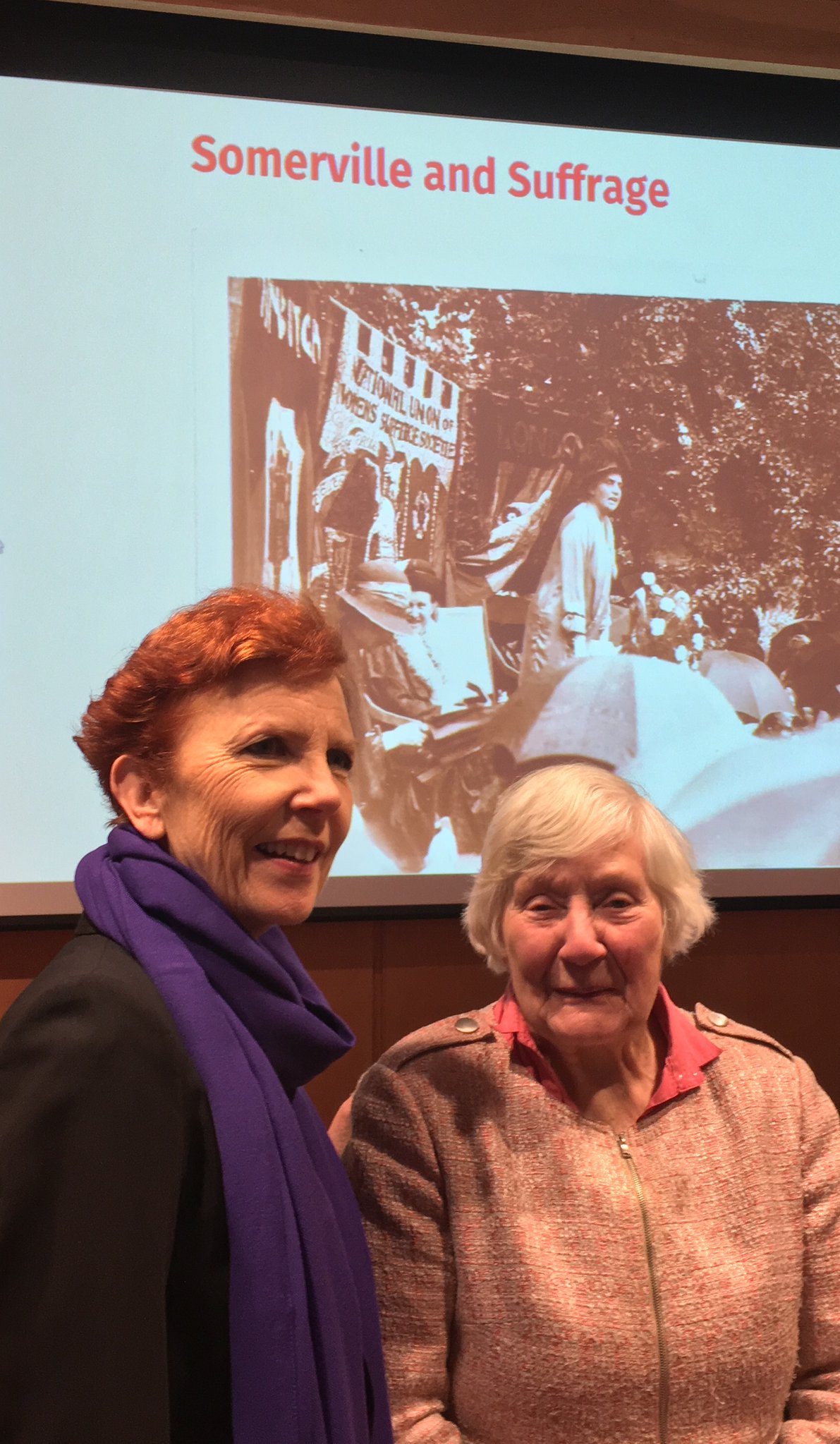This week, Somervillians past and present have made their voices heard in the celebrations and discussions surrounding the centenary of the first votes for women.
On Tuesday 6 February, the anniversary of the Representation of the Peoples Act, a special edition of Radio 4’s Today Programme from the Houses of Parliament heard Shirley Williams (Baroness Catlin of Crosby) speaking (from 1.36.00) about her early experiences as an MP: ‘The assumption was that women were not quite human but they were pleasant to have around,’ she said. She recalled the lady members’ room and the expectation that the ironing board therein would be used to press the shirts of male colleagues (and revealed that ‘Mrs Thatcher was a very keen citizen of the iron’).
Praising the ‘strong sense of solidarity among women’ in Parliament, Williams offered the view that to pardon the suffragettes would be to suggest that they had done something wrong: ‘they don’t deserve to be pardoned. They deserve to be celebrated’. Later in the programme from (2.36.00), Professor Alison Wolf (Baroness Wolf of Dulwich) spoke about the ongoing work to achieve equality for women in all areas of life, reminding us of the importance of fellow Somervillian Eleanor Rathbone (architect of child benefit, and the first Somervillian to become an MP).
Williams joined Principal Jan Royall (Baroness Royall of Blaisdon) later on 6 February for a special celebration in Somerville to launch the College’s programme of ‘Somerville and Suffrage’ events.
Somervillians also took their places on Radio 4’s list of the most influential women of the century. Nobel Prizewinning Chemist Dorothy Hodgkin and her pupil Margaret Thatcher (the first scientist and first woman to become Prime Minister) were on the final shortlist, with mathematician and politician Katherine Olllerenshaw appearing on the longlist.
On 8 February, Times columnist Rachel Sylvester was one of the panel members on Question Time which began with a discussion of equal pay and went on to address questions of the value placed on work traditionally done by women. The same evening saw Jane Robinson speaking at Newcastle University about Hearts and Minds, her new book on the suffragist pilgrimage. Last but not least, Fellow and Tutor in History Benjamin Thompson spoke to Oxfordshire County Councillor Emma Turnbull about the women in his family who fought for the vote.

